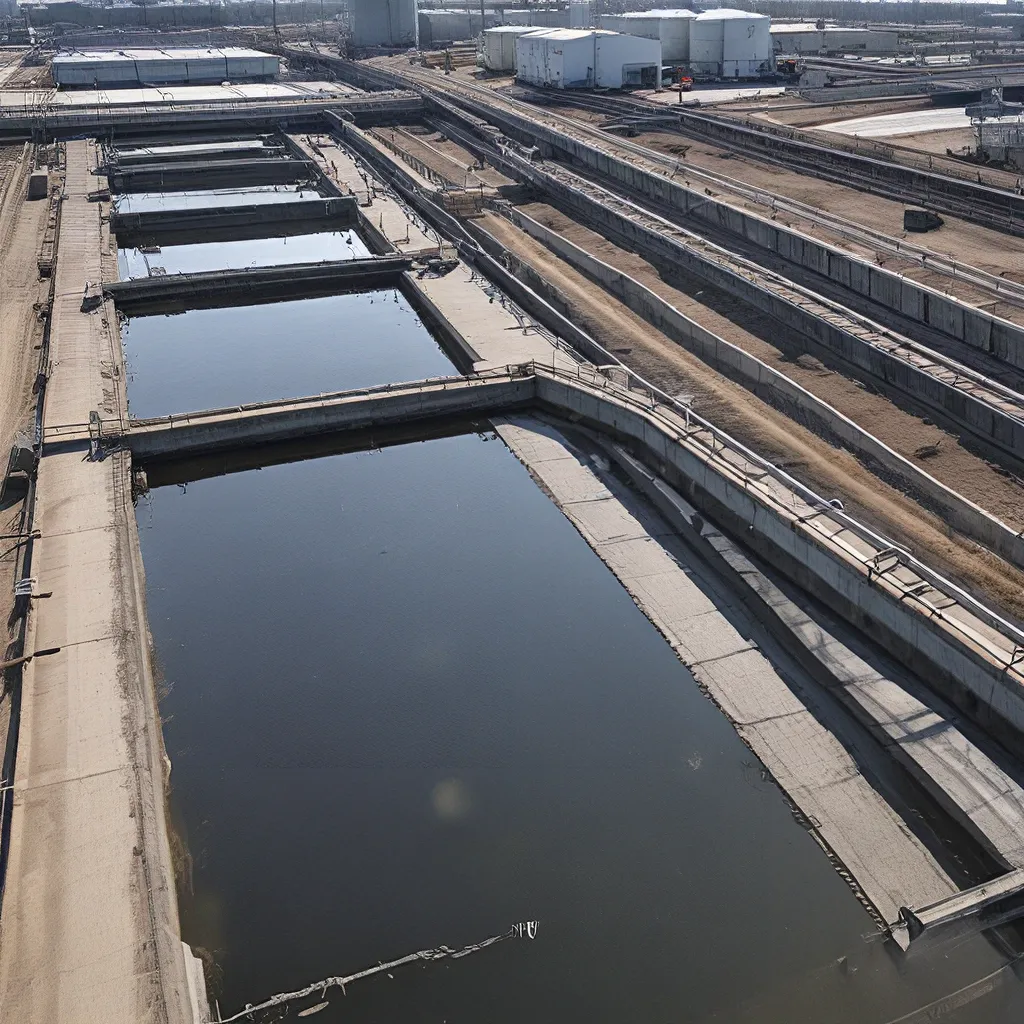
As an environmental enthusiast and a self-proclaimed wastewater treatment aficionado, I’ve always been fascinated by the intricacies of how we manage the water that flows down our drains. It’s a topic that may not be the most glamorous, but its importance cannot be overstated. And let me tell you, the world of wastewater treatment is evolving in some pretty remarkable ways.
Unraveling the Mysteries of Micropollutants
One of the most compelling areas of development in this field is the way we’re tackling the challenge of micropollutants. These are the sneaky little contaminants that can slip through traditional wastewater treatment processes, leaving behind a trail of potential environmental and health concerns. We’re talking about things like pharmaceuticals, personal care products, and industrial chemicals – the kinds of things that, in small doses, might seem harmless, but can have a real cumulative impact when they accumulate in our waterways.
Recent research has really shed some light on the prevalence and persistence of these micropollutants, and it’s eye-opening, to say the least. We’re finding them in all sorts of unexpected places – from our rivers and lakes to even our drinking water. And the more we learn, the more we realize just how complex and challenging it is to remove them from the water cycle.
Innovative Strategies for Micropollutant Removal
But here’s the thing – the wastewater treatment industry is rising to the challenge. We’re seeing the development of some truly innovative removal strategies that are making a real difference. One approach that’s been gaining a lot of traction is the use of advanced oxidation processes, which can break down these stubborn micropollutants using a combination of powerful oxidants and specialized treatment techniques.
Researchers have found that advanced oxidation can be highly effective at removing a wide range of micropollutants, from pharmaceuticals to pesticides. And the best part? It can be integrated into existing wastewater treatment systems, helping to boost the overall efficiency and effectiveness of the process.
Another promising avenue is the use of membrane filtration technologies, which can physically separate these micropollutants from the water. Studies have shown that cutting-edge membrane systems, like nanofiltration and reverse osmosis, can be incredibly effective at removing a diverse array of micropollutants, from hormones to industrial chemicals.
Balancing Efficacy and Cost-Effectiveness
Now, I know what you’re thinking – all of this advanced technology must come with a hefty price tag, right? Well, the good news is that the industry is working hard to make these innovative solutions more cost-effective and accessible. By optimizing treatment processes, leveraging economies of scale, and exploring new financing models, we’re seeing the costs of these advanced treatment systems come down significantly.
And let me tell you, the team at Alpha Wastewater has been at the forefront of this charge. They’ve been doing some really exciting work in developing customized, scalable solutions that can be tailored to the unique needs of different communities and industries. It’s all about finding the right balance between efficacy and affordability, so that we can really make a dent in this micropollutant problem.
The Future of Wastewater Treatment
Looking ahead, I’m genuinely excited about the future of wastewater treatment. As we continue to uncover the complexities of emerging contaminants, I have no doubt that the industry will rise to the occasion, pushing the boundaries of what’s possible. We’re likely to see even more advanced treatment technologies come into play, like electrochemical oxidation, enzymatic degradation, and biosorption, each with their own unique advantages.
And the best part? This isn’t just about cleaning up our water – it’s about protecting our environment and safeguarding public health. By tackling the issue of micropollutants head-on, we’re not just addressing a technical challenge, but a societal imperative. It’s the kind of work that gets me fired up, and I can’t wait to see what the future holds.
So, if you’re as fascinated by this topic as I am, I’d encourage you to keep an eye on the latest developments in the field. There’s always something new and exciting happening in the world of wastewater treatment, and I can assure you, it’s a rabbit hole worth diving into. Who knows, you might just find yourself as enamored with the science of sewage as I am!